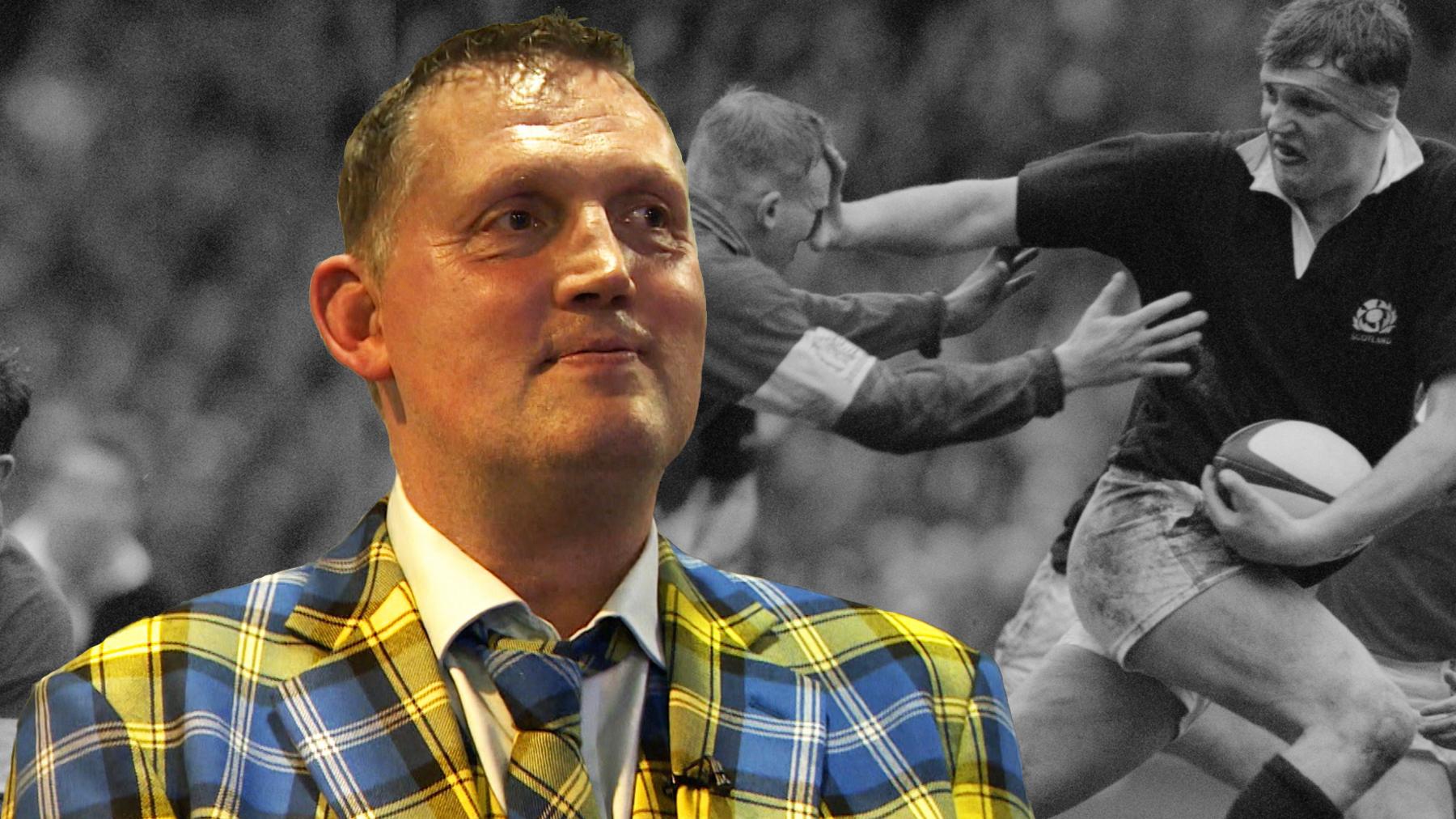Doddie Weir joins 'biggest ever' MND drug trial in Scotland
- Published
Doddie Weir: 'Finally MND drug trials are happening'
Rugby legend Doddie Weir is joining the largest ever trial of drugs tackling motor neurone disease (MND).
The former Scotland international, whose charity the My Name'5 Doddie Foundation has raised more than £5m for MND research, is calling on "every MND patient in Scotland" to join him.
The MND-Smart programme will trial new drugs, existing drugs and a placebo.
It is being described by researchers as the biggest development in a generation.
Motor neurone disease (MND) sees muscles waste away after a loss of nerve cells that control movement, speech and breathing.
There is no effective treatment or cure, and half of the 1,500 people who are diagnosed each year die within 24 months.
MND-Smart, which is being led by a team of researchers based in Edinburgh, may offer some hope.
It's built on donations from people who have lost loved ones to this disease. People have died to make this happen and that's why this is so important
Lawrence Cowan, chairman of MND Scotland, told BBC News almost every MND patient in Scotland will be eligible for the trial.
He said: "This is a giant leap in our fight back against MND. This is bigger than anything we've ever seen before in terms of drug trials.
"With MND there's only been one drug available to help stem the progression of the disease. Now this totally changes the game.
"It is also built on donations from people who have lost loved ones to this disease. People have died to make this happen and that's why this is so important. This trial is big. It's bold and it's coming to beat MND."
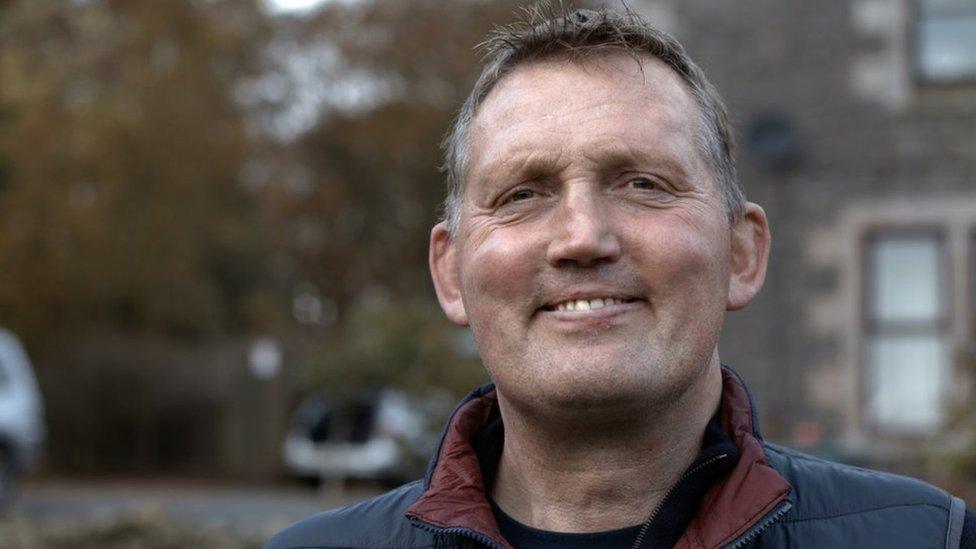
Doddie Weir is fighting against the symptoms of motor neurone disease
Doddie Weir, 49, revealed his MND diagnosis in June 2017.
He allowed cameras to follow his family for two years after his diagnosis to raise awareness of the condition and of his charity.
The result was the recent BBC TV documentary Doddie Weir: One More Try.
In the programme he spoke of his desire to find a cure, or a treatment to slow down and eventually reverse the symptoms of the disease.
He also spoke of his frustration at the lack of treatment options.
Calling on other MND patients to register for the trial, he said: "Of course I'm going to be part of the trial and I want to reach out to everyone else who has MND to register for the trial because at the moment there is nothing there on the plate for anyone who has got MND so it's an exciting time ahead.
"It's a great thing to be happening in Scotland and every patient of MND now has a positive step.
"I think 2020 will be an exciting time in the fight against MND."

MND-Smart - what is it all about?
The one existing treatment for MND can extend life for two or three months.
The new clinical trial will allow about 750 MND patients to take part in tests of potential treatments.
It is a collaboration between University College London, the University of Warwick and the Euan MacDonald Centre for MND Research at the University of Edinburgh.
Funding has come from the Euan MacDonald Centre, external, MND Scotland, external and My Name'5 Doddie Foundation, external.
While other trials focus on a single drug or treatment, MND-SMART will test several at the same time.
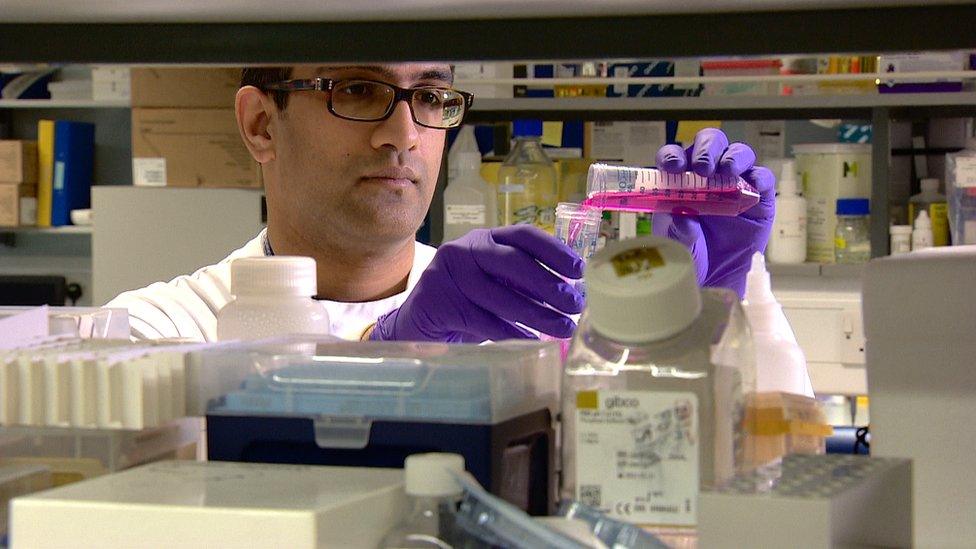
The MND-Smart trial is being led by a team of researchers in Edinburgh
Patients taking different treatments will be compared to a single group who receive a dummy drug called a placebo.
They are more likely to receive an active treatment, but the trial is also designed to be flexible so researchers can change the drugs being tested as results emerge - the "smart" part.
New drugs can be added and medicines that are not effective can be dropped.
It's an approach that has not been used before in MND research anywhere in the world.
They will test new drugs, but also medications that are already licensed for other conditions, such as Alzheimer's Disease or anxiety and depression.
Repurposing drugs like this can dramatically speed up the time it takes for effective treatments to become more widely available.

'It was heartbreaking'
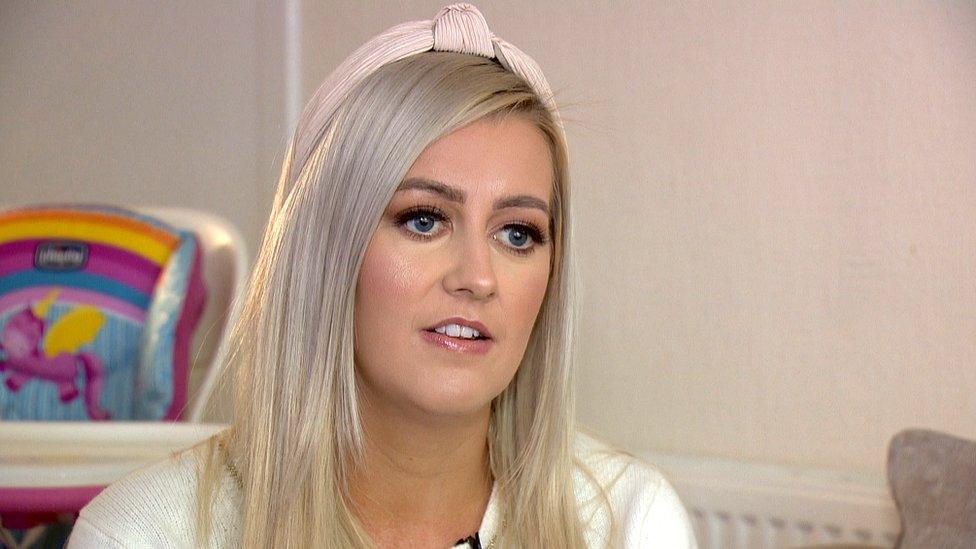
Diagnosed in March last year and given just months to live, Jennifer Bell thinks the trial is "massive"
Jennifer Bell from Glasgow got the first symptoms of MND while seven months pregnant with her youngest daughter.
The 29-year-old mum to Georgia, eight, and Kacey, one, finally got the devastating diagnosis last year and was given months to live.
She wants to get involved in the trial if she can.
She said: "It is an amazing breakthrough for MND. Ever since March when I was diagnosed, there was nothing, no treatments.
"It was heartbreaking. In this day and age you think there must be something...and there's nothing.
"I have Bulbar MND so I have a shorter life expectancy. But I will definitely getting involved. "
She continues to fundraise for the organisations funding the trial.
She added: "It makes me feel good that I have had a part to play. It is so important people continue to raise awareness."
Anyone with MND in the UK can register their interest in taking part in the trial at the MND-Smart website, external.
- Published12 September 2019
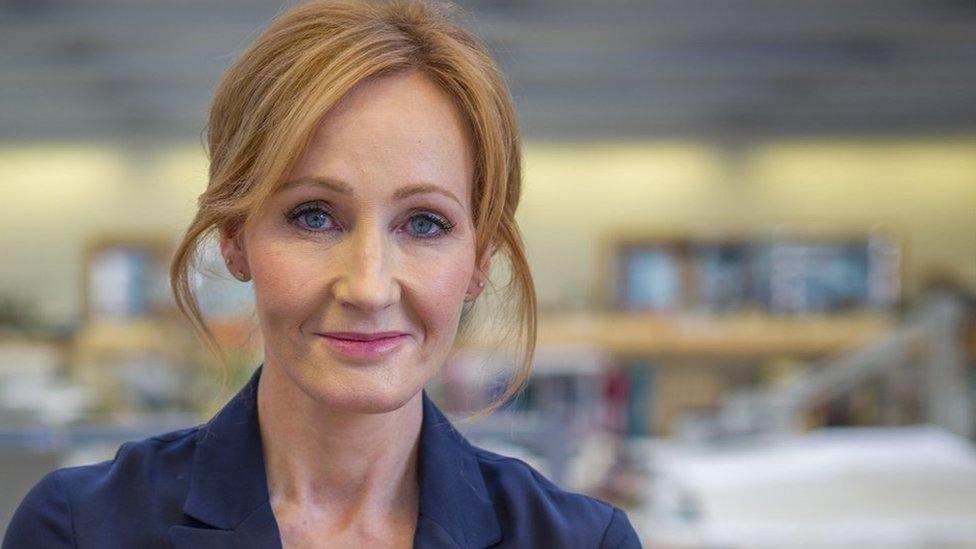
- Published18 December 2019
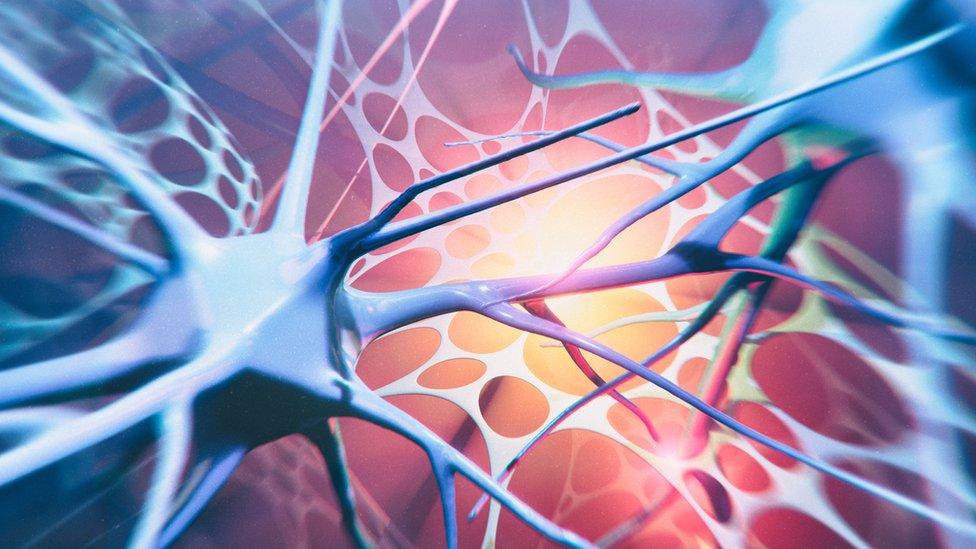
- Attribution
- Published15 December 2019
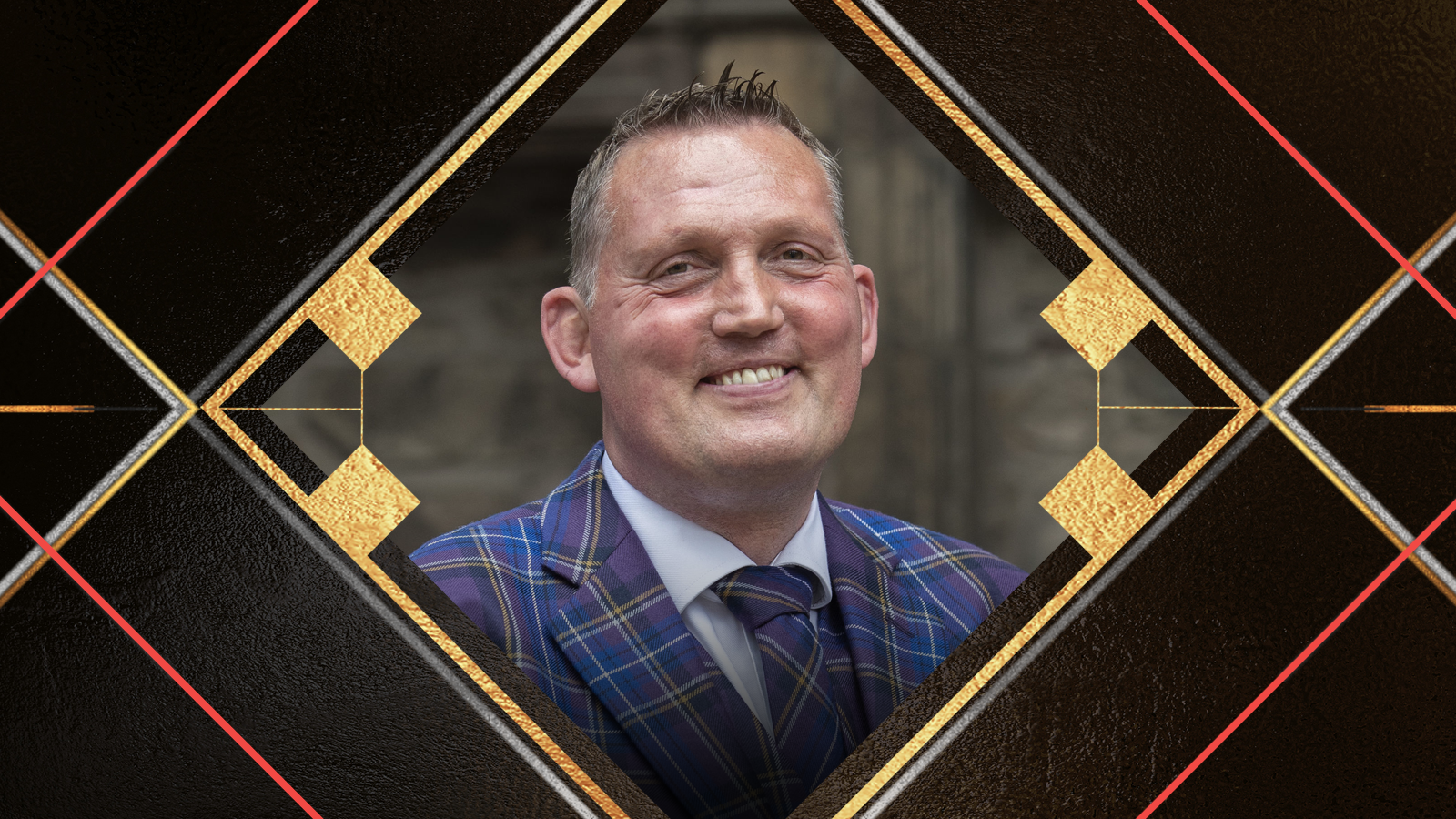
- Published7 December 2019
